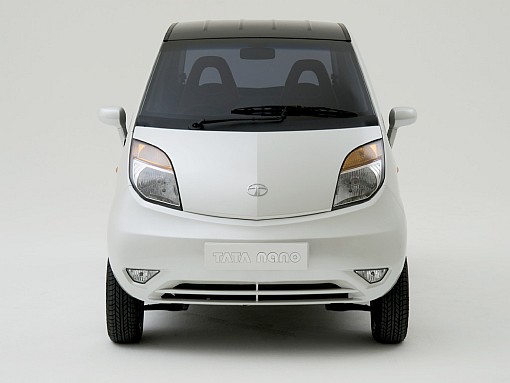Yesterday was was World Car-Free Day. Did you notice? Nope, us either.
Because while it may be amusing--for a few seconds--to imagine a world without vehicles, it's also sorta silly. It's like imagining a world without vapid blond stars who get way, way, WAY too much press. Might be nice, never gonna happen.
Autonomy and a better life
Why? Because most of the people in the world who don't have cars would love to have them. Not for the mythical Sunday drive through country roads with the family, but because personal vehicles represent autonomy and a chance to better your life.
Today, there are roughly 800 million vehicles on the planet. There are roughly 6.8 billion people, leaving 6 billion or so who don't own cars. Yet.
The auto industries of China and India, as well as existing global manufacturers, are working furiously to create and sell cars to first-time buyers--because that's where the growth is.
6 billion buyers
Established car markets in North America and Western Europe are essentially tapped out. They're replacement markets, where the carmakers believe they know the upper limits.
The "BRIC" countries--Brazil, Russia, India, and China, though not in that order--and other Asian and South American markets together offer billions of consumers who for the first time may be able to move up from a motorized two-wheeler to a real car.

Tata Nano
That may be a last-generation Asian model built in China, or in India, it may be the revolutionary Tata Nano, the world's cheapest car.
Because while U.S. buyers look at the subcompact Tata Nano and see a tiny vehicle with few of the amenities that will drive subcompact sales in this country, an Indian buyer sees it differently.
Safer than a moped
To a middle-class Indian family, a Tata Nano represents a safer form of transport than the moped that has previously carried up to a family of five in their travels. And its greater carrying capacity and longer range offer economic opportunity and social betterment.
And that promise--the ability to do more, make more money, offer one's family more choices--is what drives the desire for cars around the world.
Will those vehicles be the equivalent of today's Toyota Corolla? Probably not. With the world rapidly urbanizing, the megacities of tomorrow won't have the space for them. Instead, they might be autonomous, electric two-wheelers. But they'll still hold the same allure.
Our own little Fox
We learned about World Car-Free Day, by the way, from Politics and Cars, another in our family of High Gear Media sites. We think of it sometimes as our own little Fox News.
The article in question contains a cheerfully testy description of the event as "one of those made-up event days that the most earnest among us use to impose their political will on others. You know, like Thanksgiving."
That one--the Thanksgiving part--we have to agree with.












